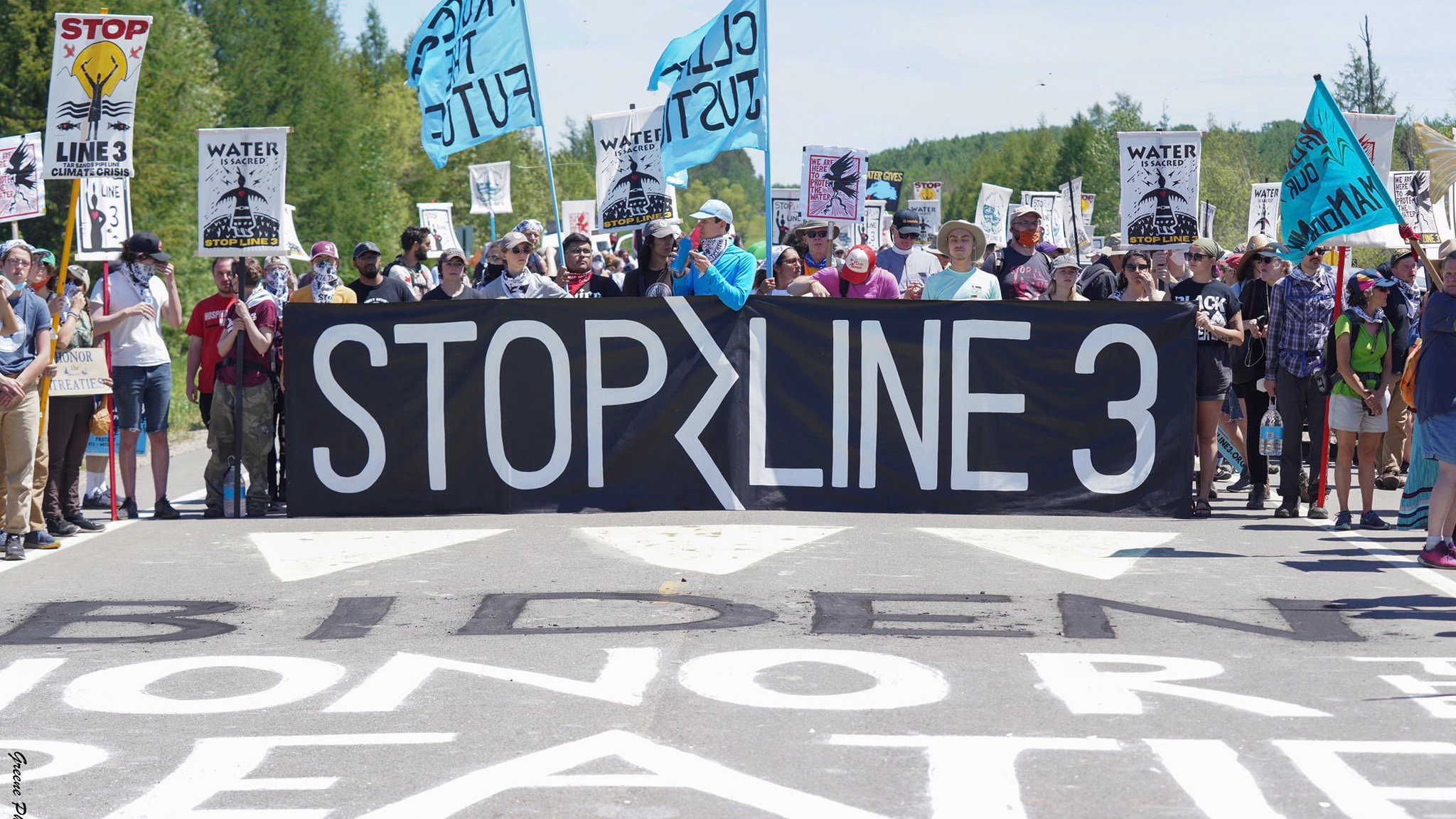Near 250 protesters who are opposing a controversial pipeline project in the State of Minnesota in the United States have been arrested over the past few days. Protesters opposed to the Line 3 pipeline had occupied an oil pump station in Hubbard County, following which 179 people were held and charged with trespassing (a gross misdemeanor as per law) and 68 people were charged with minor citations and unlawful assembly. The pipeline project is operated by the Canadian oil giant Enbridge Inc.
Protests against the construction of the final phase of the pipeline began on June 5. They are being organized by the Treaty People Gathering, a campaign led by a coalition of indigenous activists. On Monday, the campaign called for a march to the pump station along the path of the proposed pipeline. More than 2,000 Native American leaders, activists, environmentalists and local residents participated in what the organizers say was the biggest demonstration yet to take place in Hubbard County against the pipeline.
During the march, dozens of protesters occupied the Two Inlets pump station and set up barricades blocking the path of the proposed pipeline. The pump station was closed down for nearly 30 hours.
However, within hours, the police started forcibly clearing the occupation and arrested most of the protesters present there. According to the Treaty People Gathering, the police resorted to “escalated tactics”, which involved flying a police helicopter at a very close distance that sent construction debris flying and the use of Long Range Acoustic Device (LRAD) without warning. The last remaining protesters and barricades were removed by early Tuesday.
The Line 3 project is an attempt to replace an existing pipeline with a supposedly safer one which also has a bigger capacity. It was first proposed in 2014 and construction began in November 2020, despite public opposition. The old pipeline transports over 400,000 barrels of oil daily from Canada’s Alberta province to refineries in the midwestern US. The replacement pipeline is expected to more than double this capacity.
The construction for most of the replacement pipeline has been completed in Canada and the US States of Wisconsin and North Dakota, with only the contentious Minnesota portion of the pipeline remaining. A portion of the pipeline passes through indigenous lands of the Anishinaabe tribes, and will be constructed close to tributaries and headwaters of the Mississippi river.
Residents and native American communities have strongly opposed the new pipeline, especially since the old Line 3 pipeline has been responsible for two disastrous oil spills, both of which occurred in Minnesota. The first was in 1973, barely five years after it was constructed, and the second in 1991, which led to 1.7 million barrels of oil flowing into the Prairie River, a tributary of the Mississippi. The 1991 incident was the biggest inland oil spill in US history. Since then, regulators have significantly cut down the amount of oil the pipeline transports daily.
“We have very few options left. We are here to protect the water, the wild rice and the next seven generations of life. Keystone XL was stopped on the merits of environmental justice and treaty rights, this is no different. We demand President Biden take action now,” said Simone Senogles of the Indigenous Environmental Network and RISE Coalition.
Indigenous activists have also alleged that the pipeline project violates the treaty rights of the Anishinaabe tribes and access to their protected lands. The resistance against the pipeline has received nationwide attention, with celebrities, public figures, and over 370 civil society groups and social movements across the US calling for president Joe Biden to cancel the project. The growing support for the movement has also put the Biden administration in a tight spot as it has been hesitating to take a clear stand on the issue.
The pipeline is currently facing litigation at the Minnesota Court of Appeals, with a ruling expected on June 21. The court will decide whether or not the current demand for oil justifies the construction of the replacement pipeline. In the meanwhile, the protesters are continuing their struggle on the ground.
Hundreds joined another protest encampment on Monday near the Mississippi headwaters, where drilling activities under the river are set to begin on July 1. The protest called the Fire Light Camp was organized by the RISE Coalition. The Treaty People Gathering, which was organized as a four-day campaign and was scheduled to end by June 8, will also continue to organize.
“Though the Treaty People Gathering was scheduled to wrap-up on June 8th, the ongoing encampment and lockdowns demonstrate water protectors commitment to stop the pipeline,” read a statement by the campaign in the aftermath of the Two Inlets crackdown. “The Gathering brought new allies to the fight, bolstering the efforts of frontline and Indigenous groups to organize and expand the resistance.”





